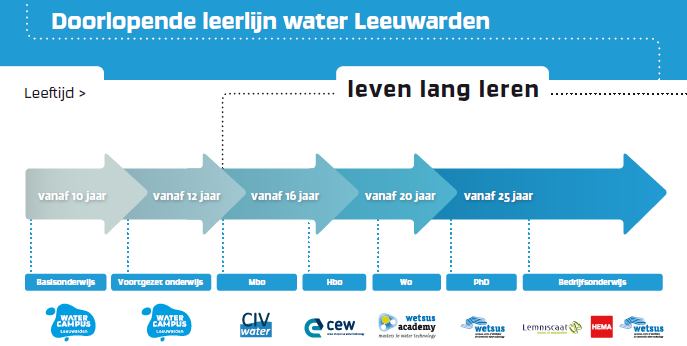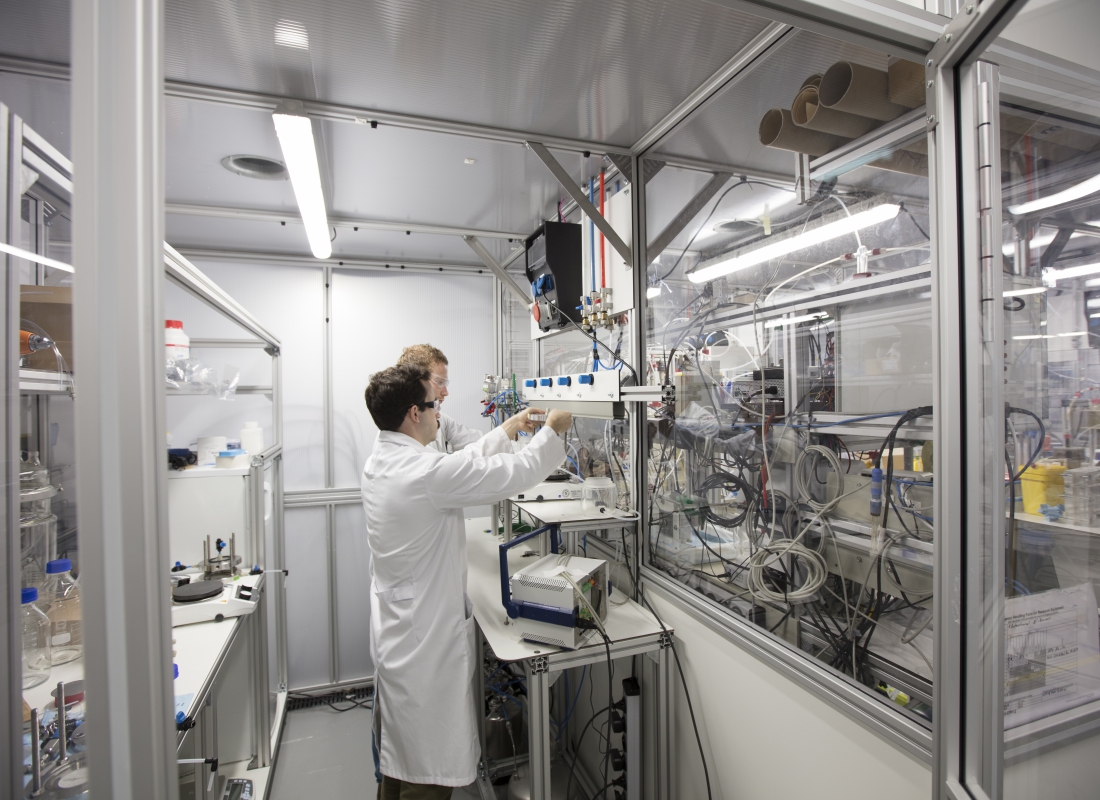Instroom in watergerelateerde vervolgopleidingen kun je alleen vergroten door meer jongeren te interesseren voor water. WaterCampus Leeuwarden tracht de interesse op te wekken door scholieren tijdens hun schoolcarrière via inspirerende ontmoetingen en activiteiten in contact te brengen met de veelzijdige wereld van water. Het programma wordt uitgevoerd door Wetsus.
Zo bezoekt de ‘WaterProfessor’ meer dan 100 basisscholen in Friesland met een interactieve lessenserie.
In het voortgezet onderwijs richt WaterCampus zich op profielkeuzevoorlichting, excursies, ontwerpopdrachten, gastlessen, wedstrijden en wordt lesmateriaal ontwikkeld in samenwerking met het onderwijs.
Wetsus werkt met een vast team van 5 docenten aan diverse projecten welke gebruikt kunnen worden binnen het Basis– en Voortgezet onderwijs.
Het WaterCampus Talent Programma is een belangrijke pijler in de leerlijn water. De strategie om nog meer gezamenlijk te opereren past binnen de ambities van deze leerlijn.
Met het Centrum voor Innovatief Vakmanschap (mbo), Centre of Expertise Water (hbo) en MSc Water Technology in Leeuwarden heeft het noorden een unieke studieomgeving gecreëerd waarin op alle onderwijsniveaus watertechnologie onderwijs aangeboden wordt. Aansluitend hierop kunnen studenten doorstromen in een PhD traject bij Wetsus of uitstromen richting de watersector.
Het WaterCampus Talent Programma wordt ondersteund door provincie Fryslân en gemeente Leeuwarden.

Docenten:
• Jan Melein – Natuurkunde
• Jan Jurjen Salverda – Natuurkunde
• Marlieke Sietsema – Scheikunde
• Monique Suelmann – Biotechnologie
• Nienke Sinnema – Biologie
Support:
• Rouèl Gnodde – Manager Talent Program
• Anita de Boer – Secretaresse/boekingen
